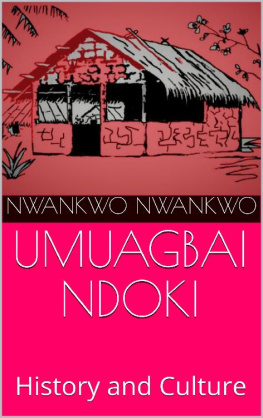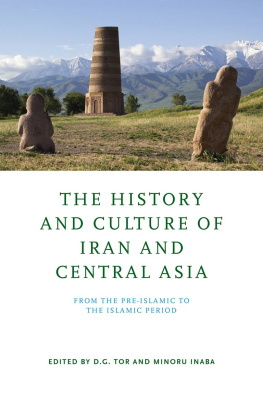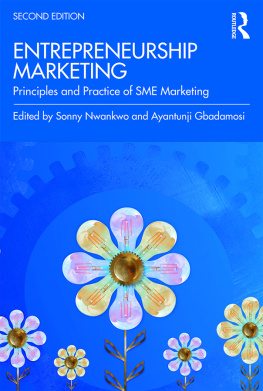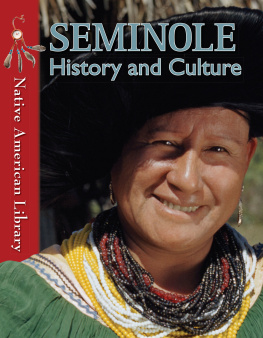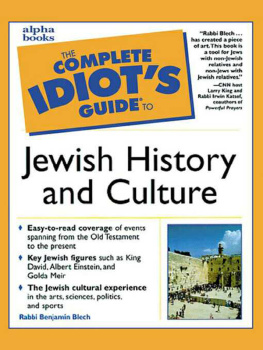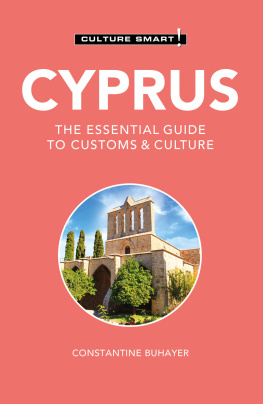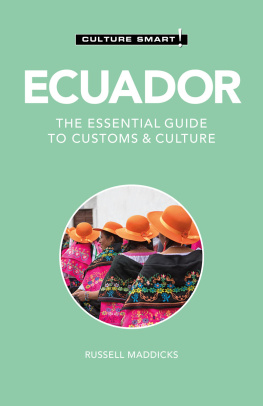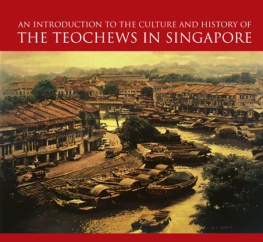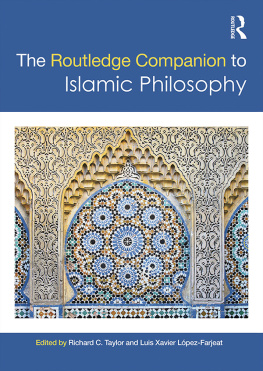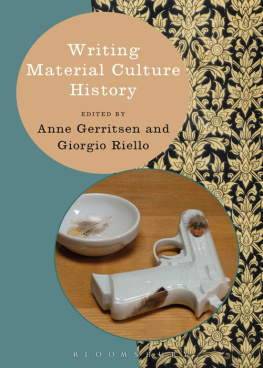Nwankwo Nwankwo - UMUAGBAI-NDOKI: History and Culture
Here you can read online Nwankwo Nwankwo - UMUAGBAI-NDOKI: History and Culture full text of the book (entire story) in english for free. Download pdf and epub, get meaning, cover and reviews about this ebook. City: Port Harcourt, year: 2018, publisher: Onyoma Research Publications, genre: History. Description of the work, (preface) as well as reviews are available. Best literature library LitArk.com created for fans of good reading and offers a wide selection of genres:
Romance novel
Science fiction
Adventure
Detective
Science
History
Home and family
Prose
Art
Politics
Computer
Non-fiction
Religion
Business
Children
Humor
Choose a favorite category and find really read worthwhile books. Enjoy immersion in the world of imagination, feel the emotions of the characters or learn something new for yourself, make an fascinating discovery.
- Book:UMUAGBAI-NDOKI: History and Culture
- Author:
- Publisher:Onyoma Research Publications
- Genre:
- Year:2018
- City:Port Harcourt
- Rating:4 / 5
- Favourites:Add to favourites
- Your mark:
- 80
- 1
- 2
- 3
- 4
- 5
UMUAGBAI-NDOKI: History and Culture: summary, description and annotation
We offer to read an annotation, description, summary or preface (depends on what the author of the book "UMUAGBAI-NDOKI: History and Culture" wrote himself). If you haven't found the necessary information about the book — write in the comments, we will try to find it.
UMUAGBAI-NDOKI: History and Culture — read online for free the complete book (whole text) full work
Below is the text of the book, divided by pages. System saving the place of the last page read, allows you to conveniently read the book "UMUAGBAI-NDOKI: History and Culture" online for free, without having to search again every time where you left off. Put a bookmark, and you can go to the page where you finished reading at any time.
Font size:
Interval:
Bookmark:
UMUAGBAI NDOKI
HISTORY AND CULTURE
2018 Nwankwo Nwankwo
ISBN 978-1-716-09174-2
Published in 2017 by Onyoma Research Publications
11 Orogbum Crescent, GRA Phase II P.O. Box 8611 Federal Secretariat Post Office, Port Harcourt Rivers State, Nigeria.
E-mail:
Mobile Phone: +234 (0) 803-308-3385
Website: www.onyomaresearch.com
Research and Data Collation
Ibinabo Samuel Igonikon
Cover Illustration: Acrylic painting depicting the ObuN'gbala, Tables and Maps
Samuel Marshall
This Digital Version Is Made Available for Free to You By
Ichinga Samuel Chukwudike.
With the Consent and Good Will of the Author
To
Umuagbai - Ndoki:
People and Generations Unborn
And to
My Late Sister:
Mrs. Nne Ekekeugbo
ne Nwankwo
Also to
My Late Parents:
Chief Monday Nwankwo
and
Mrs. Orianu Erinna Nwankwo
ne Nwauche
My heartfelt appreciation goes to Professor Emeritus E.J. Alagoa, Fellow of the Historical Society of Nigeria (FHSN), Fellow of the Nigeria Academy of Letters (FNAL) and Officer of the Order of the Niger (OON), for his supervision, constant advice and for his untiring effort in ensuring that this work materializes; and accepting to write the foreword to this book. The indispensable roles he played in the realization of this work are highly appreciated.
I also thank the many informants whom I met in the course of my field work. I benefitted immensely from their lively interactions. Their valuable input was useful in documenting Umuagbai-Ndoki: History and Culture. These individuals include; His Royal Highness Eze IsraelNwauche (JP), Chief Abraham Nnantah, Chief Zacchaeus Nwankwo and Chief Monday Nwankwo, all of blessed memory. I was told about places and people by these illustrious sons of Umuagbai Town. Later I read for myself some notes kept by one of them who was an uncle of mine, the late Eze Israel Okere Nwauche.
Others include; Elder Reuben Nnadi, Peter Nwogu, Achonna Nwankwo, Chief Princewill Onyeche, Sir Ndukwu Nwankwo, Mr. Evidence Nnantah, Mr. Adindu Ekekeugbo, Mr. Onyesom Chibo, Chief Emmanuel Nna Otoni, Chief James Nwankpa and Chief Ekenne Nwagbara. I deeply appreciate each of them for their contributions. In the same manner, I am very grateful to Chief Nwuche Igwe Nwuche (Onyenwe-Ala), the paramount ruler of Umuagbai Town. Chief Ugwuezi Ekeke, Chief Chidi Odum, Chief Ibeabuchi Akawor, Chief Samuel NnaOkereChibo and Elder Joshua Onuoha (both were alive when this book was started), Chief Samuel Dike, Elder Emma Nwankwo, Mr. Enyinna Gabriel Onyeike, and Chief Nwakanma Okere and Chief Friday Nwandikwa both from Azuogu. I thank them all for
their useful contributions to this work. I also acknowledge the useful role played by Mr. Anthony I. Nwuche for his technical support and Gift Iyowuna for typsetting the manuscript. I also thank Mr. Marshall Samuel for his artistic dexterity that is reflected on the cover of this publication. And also I thank Engr. Chijindu Nwankwo for his constant reminder on the need to complete this book. My heartfelt appreciation goes to late Elder Dennis Nna Nwankwo, the choir master who assisted me in our early days to collect most of the drafts from my late uncle, his father, Chief Zacchaeus Nwankwo, and the late Dr. Sunday Jaja.
Finally, I thank my dear wife Ibiba Edna Nwankwo as well as our lovely daughters, Uloma, Udodirim, Ijeoma and son Prince Nnaemeka for their love and understanding, in the course of my collection of these writings, Umuagbai - Ndoki: History and Culture.
TABLE OF CONTENTS
Contents
The histories of communities are significant in the lives of such people who inhabit the areas whose histories have been documented. And to Umuagbai people, this memoir, the first of its kind in the life of the community, is yet another contribution to general scholarship. It is a fascinating and insightful account of the history and culture of Umuagbai Town in Ndoki land. The intention of this book, entitled Umuagbai - Ndoki: History and Culture is to set down these past events, takenfrom those who can still remember them, before they are totally lost to us and to hand some down to our children and generations yet unborn in a written form. This has been my simple aim in documenting Umuagbai - Ndoki: History and Culture. With regard to the proof of thehistorical facts contained in this narrative, I have left that task to future researchers bearing in mind that history is never an end to itself in its entirety; and in documenting the Umuagbai - Ndoki: History and Culture, I have placed reliance on several documents and works of other scholars among which include the Intelligence Reports on Ndoki Clan, etc. The gratitude I owe them is reflected in the many quotes that were cited in developing the main thrust of this narrative. Umuagbai - Ndoki: History and Culture consist of eight chapters with a number of sub-sections embedded in each chapter. I accept sole responsibility for any error of fact.
Chief (Sir) Nwankwo Nwankwo (KJW)
October, 2016.
Chief Nwankwo a technocrat and entrepreneur, felt challenged - by the crass ignorance he noted among the youths of his community about family and community history - to undertake this project. He has expended a great deal of time and effort on the project, as well as seeking the support of professional historians over several years. The result of this patriotic achievement deserves support, recognition and appreciation.
Whatever it may lack in professionalism, it makes up with deep knowledge of local historical traditions gathered over many years and digested through discussion and several drafts and revisions.
This work is likely to form the foundation of the history and cultural traditions of the Umuagbai community of Ndoki, and other Ndoki communities settled across the boundaries of Rivers, Abia and Akwa Ibom States of Nigeria.
This book tells a story that is relevant to many ethnic nationalities, cultural groups and communities in the South-Eastern and Niger Delta regions of Nigeria.
Emeritus Professor Ebiegberi Joe Alagoa, NNOM.
Umuagbai , Ndoki , of South-South and South-Eastern Nigeria
Presently, the people of Ndoki clan are located in South South and South Eastern Nigeria . In the South South, the Ndoki people are found in Oyigbo Local Government Area of Rivers State . Besides their occupying parts of Rivers State, they have stretched out to another South South State known as Akwa Ibom State. The Ndoki people who are located in Akwa Ibom State are found in Ukanafun Local Government Area specifically in a village called Ikot Inyang Udo (also known as Oha Obu ). In summary therefore, the Ndoki people located in the South South region of the country can be found in Oyigbo Local Government Area of Rivers State and Ukanafun Local Government Area of Akwa Ibom State respectively, while their kit and kin in the South-Eastern region can be found in Abia State , occupying the Ukwa-East Local Government Area.
According to the 1934 C.T.C. Ennals Intelligence Report , They speak Igbo , but with dialectal variants from the Igbo spoken by the Ngwa clan. This view did not contrast with Alagoa s (2005:176) who asserts that the Ndoki have in the past, been classified as Igbo on cultural grounds.2 Without any point of difference from Alagoa and Ennals, Ndimele and Williamson (cited in Alagoa and Derefaka (eds) 2002:49) clearly observe the sameness in the culture of the Ndoki people and the Igbo people from the perspective of language when they say, The form of Igbo spoken is often referred to as Ndoki.3 From the statement made by Ndimele and Williamson, it could be deduced that the reference to the form of Igbo spoken by the people of Ndoki, is that for the language to have been referred to as Ndoki Igbo is another way of preserving the ethnic identity of the people of Ndoki in a pluralistic Nigerian society. This inference derived some impetus from the historical fact that the Ndokis themselves had been together with the Igbos in the defunct East-Central State and much later in the Eastern State of Imo before they were administratively severed as a result of the Justice Nasir Boundary Adjustment Commission of 1977. To properly situate the Ndoki clan; the clan is bordered by vast distinct linguistic groups whom Enemugwem sees as non-Ijos belonging to the periphery of the Delta. By his submission as well, the Ndokis are also part of the periphery of the Delta. The peoples of the periphery are non-Ijos in Akwa Ibom , Rivers, Delta, Edo and Ondo State s (Enemugwem 2009:4). This may explain why Alagoa (2005:178) maintains that the Ndoki represent another example of the multiple influences shaping the development of communities in the northern Delta fringe.4
Next pageFont size:
Interval:
Bookmark:
Similar books «UMUAGBAI-NDOKI: History and Culture»
Look at similar books to UMUAGBAI-NDOKI: History and Culture. We have selected literature similar in name and meaning in the hope of providing readers with more options to find new, interesting, not yet read works.
Discussion, reviews of the book UMUAGBAI-NDOKI: History and Culture and just readers' own opinions. Leave your comments, write what you think about the work, its meaning or the main characters. Specify what exactly you liked and what you didn't like, and why you think so.

